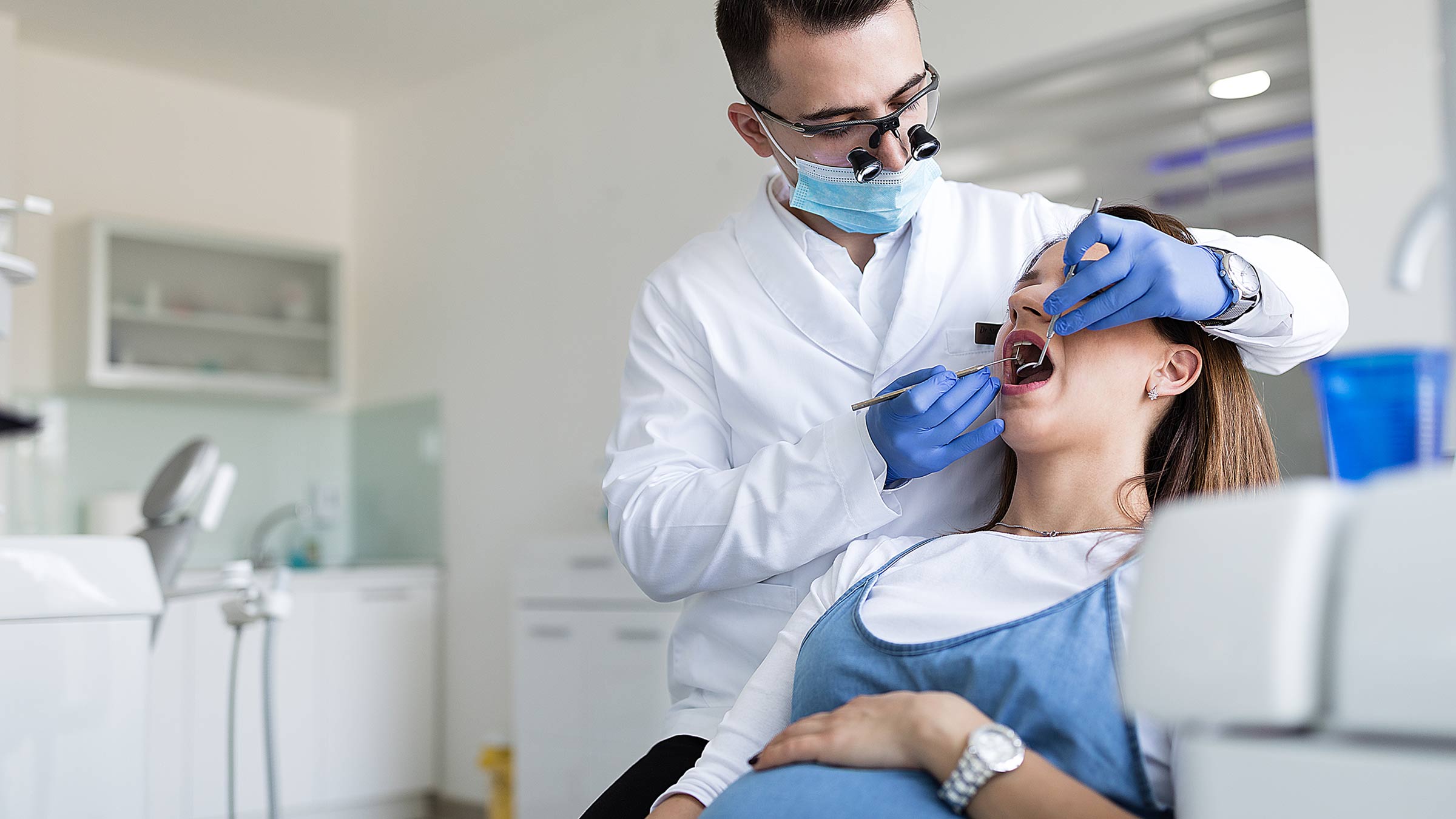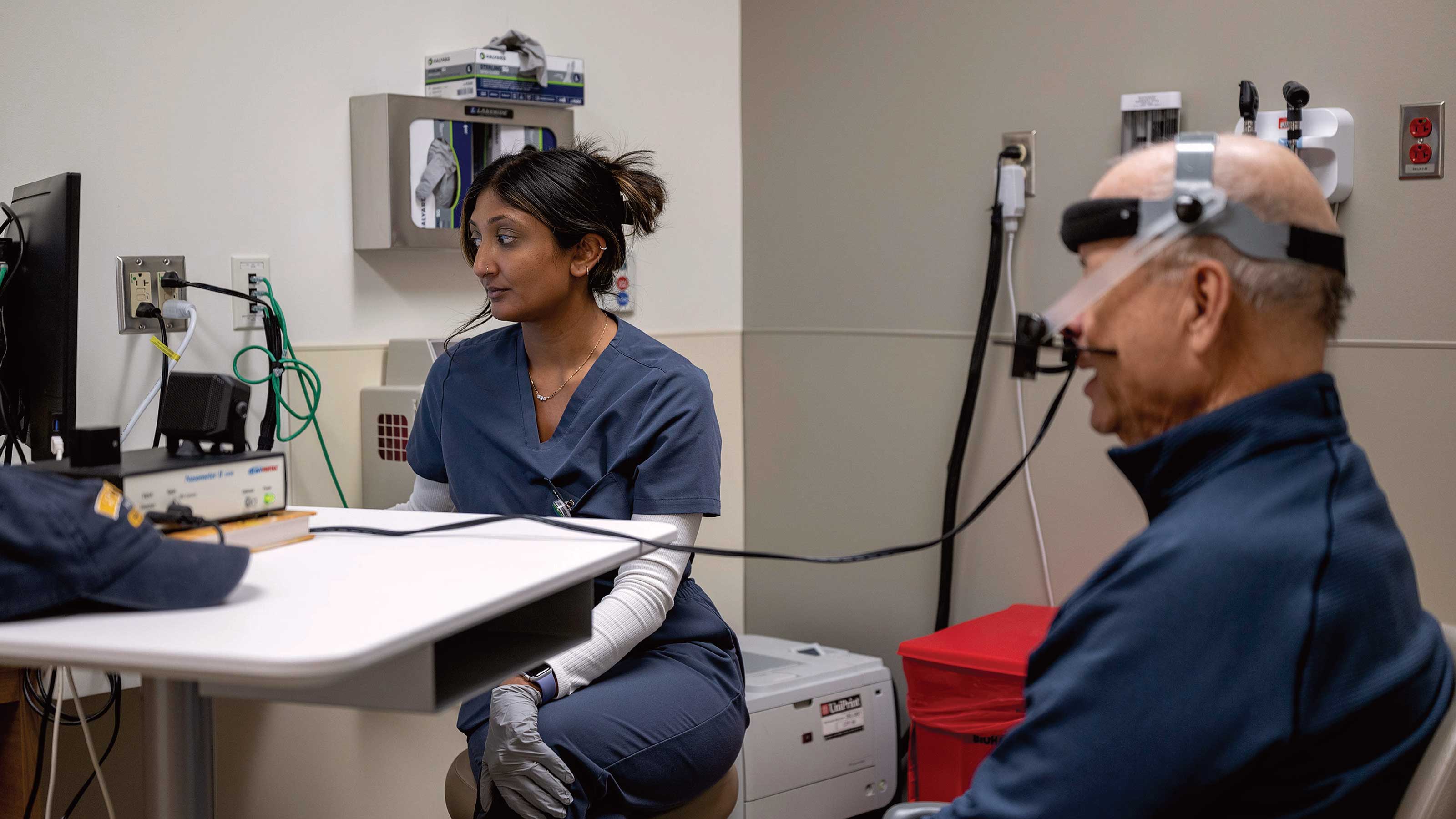
We all know that the body changes during pregnancy. What many people don’t realize is some changes may occur in their mouth. While some oral changes are common and should be no cause for real alarm, dental problems can and should be addressed during pregnancy.
Is it safe to get dental care when pregnant?
Dental care and dental treatment are safe during all trimesters of pregnancy. Prior to 2013, pregnancy often prevented a patient from receiving oral care. Providers were hesitant, and patients believed treatment could cause harm to their developing baby. In 2013, updated recommendations from the American Dental Association (ADA), the American Academy of Pediatric Dentistry (AAPD) and the American College of Obstetricians and Gynecologists (ACOG) dispelled those concerns.
Pregnant people may still have older family members who think dental care isn’t safe. Everyone can be reassured that dental care is needed and safe.
Pregnant people should get their normal six-month dental cleanings if they’re able. Some people may find the odors unpleasant during the first trimester; others may feel uncomfortable from weight gain at the end of their pregnancy. While personal preferences should be considered, any tooth pain or other dental problems should be treated as soon as possible.
Common oral health changes during pregnancy
There are several common issues that accompany pregnancy. Most are normal and can be expected. There are different ways to manage issues; many will resolve after the pregnancy is completed.
Lumps and loose teeth
About 5% of pregnant people will develop pyogenic granuloma. This is a small, red lump in the gums caused by the increased immune response that comes with pregnancy. While most pyogenic granulomas stay small, they can get as large as two centimeters. They usually go away after the baby is born.
As pregnancy progresses, joints and ligaments relax to prepare for delivery of the baby. Pregnant people may notice a bit of tooth mobility. This is common and will resolve after delivery.
Gum problems: Bleeding gums, gingivitis and periodontitis
Pregnant people may notice tender gums while brushing, and bleeding gums after brushing. There might even be pain when flossing, but they should continue flossing and brushing anyway. That may seem counterintuitive, but bleeding is just the body’s way of signaling an inflammation response. Use a soft bristle toothbrush, and use upward or downward strokes from the gumline rather than a saw-like brushing motion.
Gingivitis is a mild gum disease that causes bleeding gums. People with gingivitis should continue brushing and flossing, even if bleeding worsens. Rinsing the mouth with a mild saltwater solution may help their gums. Mix 1 teaspoon of salt in a cup of warm water and swish it around in the mouth for about 30 seconds. This can be done prior to brushing, or more often to help treat sore gums.
About 40% of pregnant people will develop periodontitis, which is inflammation that erodes the bone around the teeth. African Americans and smokers are at increased risk of this gum disease. Pregnant people should avoid smoking because of other detrimental health issues for both them and their babies. Gum disease doesn’t cause low birth weight babies and preterm birth, but it may signify underlying inflammation issues that lead to these poor outcomes.
Morning sickness can be bad for dental health
Nearly 70% of pregnant people experience nausea and vomiting during their pregnancy. The stomach acid from vomiting can hurt the teeth. Stomach acid causes dental erosion, which is the wearing away of the enamel, the natural protective coating on teeth. Once the enamel wears away, it doesn’t grow back. Less enamel can lead to tooth sensitivity and tooth decay.
After vomiting, don’t brush your teeth right away. That may seem counter-intuitive, but brushing immediately scrubs away the enamel further. Instead, rinse with a baking soda solution to bring the mouth back to a neutral pH. Dissolve a teaspoon of baking soda in a cup of water and swish your mouth thoroughly. Then, wait about 30 minutes before brushing.
Crackers are often recommended to help relieve nausea caused by morning sickness. Beware, though, of an increased risk of cavities from the carbohydrates, which break down into sugars. People eating extra crackers (or any snack) should drink water to flush their teeth between brushing.
Pregnancy is a good time to improve self-care and instill better overall health. The old saying is true: An ounce of prevention is worth a pound of cure.
Dental treatment is important during pregnancy
Many of these issues will resolve after the pregnancy ends. But, if they get worse during pregnancy or if you have concerns, call a dentist. Pregnant people with tooth decay or pain should get it treated. Without treatment, a cavity becomes a bigger problem and requires more extensive care. If it hurts, get it fixed. Delaying care causes more harm than getting care.

Healthy teeth start here
Ohio State offers complete general and specialty dental care, including emergency care for patients of all ages.
Schedule an appointment




